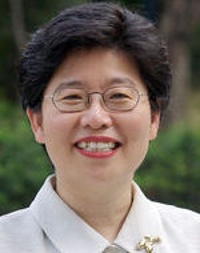
(Sociology)
“Youth unemployment? It makes me mad every time I hear that term!” said the CEO of a minor enterprise in a lecture I attended. “Nowadays, people say that youth unemployment is a problem in society but employing a college graduate is only a dream for minor enterprises like us.”
The jobless are in a constant search for jobs while employers look for employees; the situation shows no sign of improvement.
Admittedly, youth unemployment is a result of integrated factors, but it is also time to look at the job expectations of college graduates.
In a renowned private university in Seoul, the majority of college graduates are unemployed because they choose to prepare for the state examinations. While the number of students preparing for the bar exam is probably facing a decrease, the number of students preparing for the Higher Civil Service and other state examinations are still increasing, looking for secure or high salary jobs.
In a recent survey answered by the first-year students of a private university, one out of every four students desires to study abroad, one out of five students to go to graduate school, and one or two out of 10 students claim that they want to give a try for the state examinations. Only one out of four students says that he or she wants to be employed after graduating college. However, their answers changed once they were actually faced with graduation; the number of students wanting to be employed after graduation increased to six to seven out of 10. In the end, it seems that college students realize as they grow older that their dreams were just fantasies, imaginations or reveries.
Another group of students that comprises just as high a percentage is those who do not know what they want to do after graduation. At first, these students seem to contemplate their future, but as time goes by, they lose track of who they are and what they want to be. In most cases, these students are usually the outcomes of Korean parents’ strong zeal for education.
The depressing phenomenon applies to fresh graduates who seek jobs. We continue to hear stories of students these days only wanting the big companies advertised in televisions and choosing not to take a major conglomerate job if it is located in a rural area. Others are unable to accept a job because of their parents’ objection to a minor enterprise. All of these cases and more is the reality that we do not want to face, but must do so all the same.
The situation having worsened this far, it is evident that youth unemployment is no longer a problem of just today’s youth and its roots are too deep to merely hope for an immediate solution to appear with graduation. This is all the more reason to find a solution to the job-seekers’ job expectations.
With youth unemployment at its worst, today’s students are truly unfortunate to have their future shaded by education focused on universty admission. Consequently, it is necessary to teach children the harsh reality and diversity of the “working world” and how fast it is changing.
Parents are no exceptions in working toward solving youth unemployment. They should help job-seekers discard their fantasies and discrimination towards some jobs, instead of forcing or encouraging their children to have ostentatious jobs. Helping their kids find jobs based on what they are good at and what they want to have as the career of their lives – these are the assignments facing the present-day parents.
*Professor Hahm In-hee has a master’s degree from Ewha Womans University and a doctoral degree from Emory University. She is also the director of the Korea Family Studies Association.

